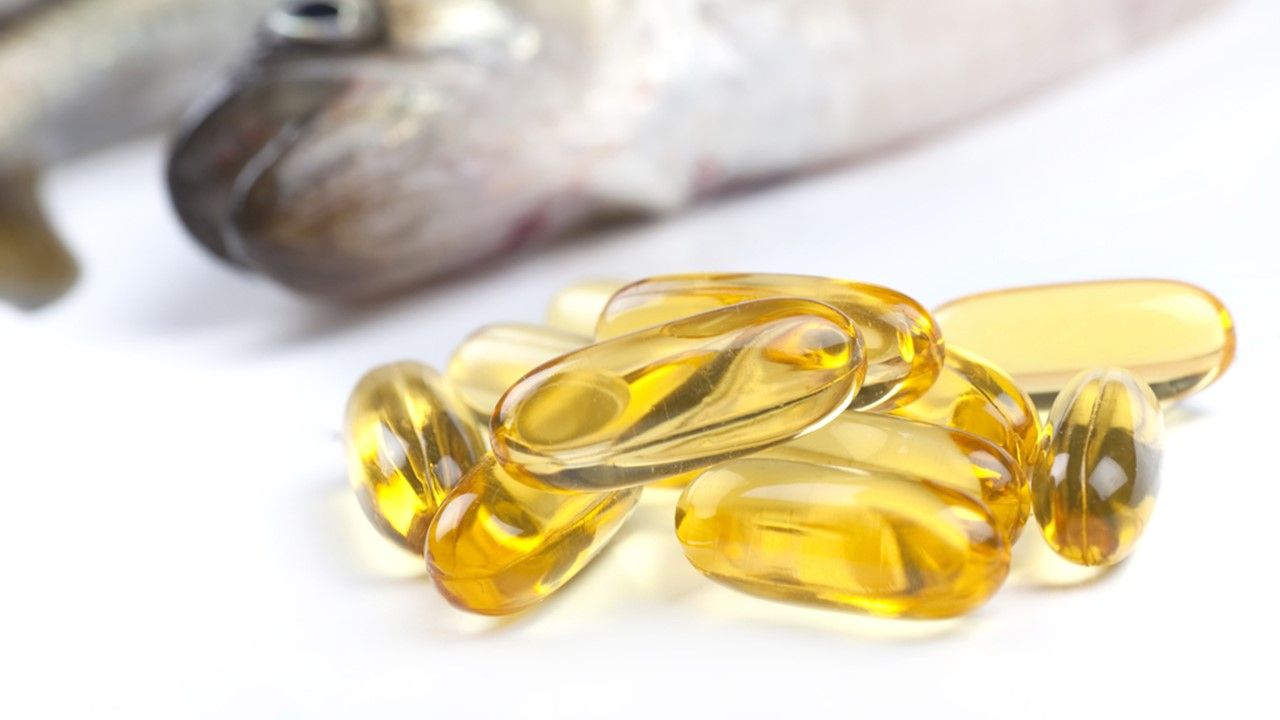Omega-3 Fatty Acids May Improve Semen Quality
The evidence is inconclusive, but a cross-sectional study of young men finds that omega−3 fatty acid supplements may improve semen quality and reproductive hormone levels in men.
(©VJMatthewShutterstock)

The evidence is inconclusive, but a cross-sectional study of young men finds that omega−3 fatty acid supplements may improve semen quality and reproductive hormone levels in men.
The study, by Tina Kold Jensen, Ph.D., of the University of Southern Denmark, was published January 17 in JAMA Open Network.
"These findings suggest that intake of fish oil supplements was associated with better testicular function, which is less likely to be due to confounding by indication, as no associations of intake of other supplements with testicular function were found," Dr. Jensen and colleagues wrote.
After adjusting for duration of ejaculation abstinence, age, fever within the last three months, smoking and physical fitness, fish oil supplements were found to be associated with higher semen volume and total sperm count, larger testicular size, a higher calculated free testosterone to luteinizing hormone ratio, and lower follicle-stimulating hormone and luteinizing hormone levels.
This was a Danish study that included 1,679 men (mean age 18.9 years). Of these, 98 men (5.8%) used fish oil supplements in the last three months and of these, 53 (54.1%) took the fish oil supplements for at least 60 days.
In comparing the group with men who did not take supplements, men who took fish oil supplements for fewer than 60 days had semen volume that was 0.38 (95% CI, −0.03 to 0.80) mL higher, and men who took the supplements for 60 or more days had semen volume that was 0.64 (95% CI, 0.15 to 1.12) mL higher (P for trend < .001).
Similarly, testicular size for men who took the supplements for less than 60 days was 0.8 (95% CI, −0.2 to 1.9) mL larger and in men with fish oil supplement intake on 60 or more days was 1.5 (95% CI, 0.2 to 2.8) mL larger compared with men with no supplement intake (P for trend = .007). Men who took fish oil supplements were found to have a 20% (95% CI, 9%-31%) lower follicle-stimulating hormone level and 16% (95% CI, 8%-24%) had lower luteinizing hormone level compared with men with no supplement intake. There were no associations of intake of other supplements with measures of testicular function.
The findings need to be confirmed in randomized clinical trials, but the findings as reported by Jensen et al. is a good start, wrote Albert Salas-Huetos, MSc, Ph.D., University of Utah School of Medicine, in a commentary published with the study.
"The evidence supporting an association of diet with sperm quality is growing very rapidly. The article contains very interesting observational data that could affect assisted reproductive clinics if the findings are reproduced in the future by well-designed research clinical trials. Despite the study by Jensen et al, much work is still required to examine the complex association between dietary supplements and semen quality and to determine whether such an association could help to improve fecundity or fecundability and the results of assisted reproductive techniques.
REFERENCES
Tina Kold Jensen, PhD; Lærke Priskorn, PhD; Stine A. Holmboe, PhD; et al. "Associations of Fish Oil Supplement Use With Testicular Function in Young Men," JAMA Open Network. Jan. 17, 2020. DOI:doi:10.1001/jamanetworkopen.2019.19462
Albert Salas-Huetos, MSc, PhD. "More Evidence of the Association of Diet With Human Testicular Function-Fish Oil Supplements," JAMA Open Network. Jan. 17, 2020. DOI::10.1001/jamanetworkopen.2019.19569